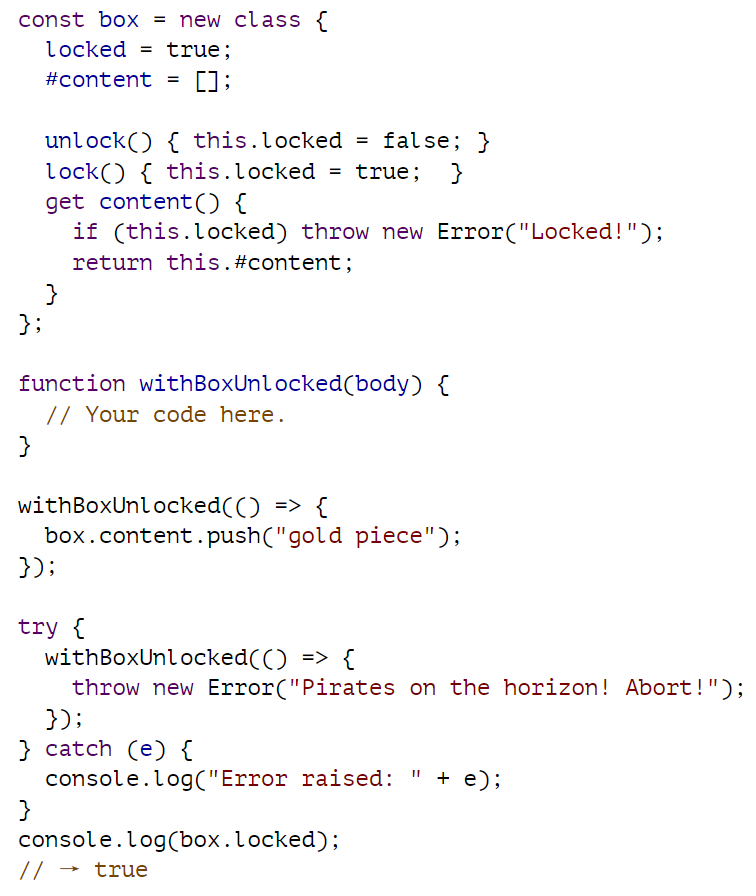

✨ Blog’s 主页: 白乐天_ξ( ✿>◡❛)
🌈 个人Motto:他强任他强,清风拂山冈!
🔥 所属专栏:C++深入学习笔记
💫 欢迎来到我的学习笔记!

参考博客:【C++】透过STL源码深度剖析及模拟实现vector-CSDN博客
一、源码引入
这里我们学习的是基于SGI版本的STL源码。源码如下:
// stl_vector.h
/*
*
* Copyright (c) 1994
* Hewlett-Packard Company
*
* Permission to use, copy, modify, distribute and sell this software
* and its documentation for any purpose is hereby granted without fee,
* provided that the above copyright notice appear in all copies and
* that both that copyright notice and this permission notice appear
* in supporting documentation. Hewlett-Packard Company makes no
* representations about the suitability of this software for any
* purpose. It is provided "as is" without express or implied warranty.
*
*
* Copyright (c) 1996
* Silicon Graphics Computer Systems, Inc.
*
* Permission to use, copy, modify, distribute and sell this software
* and its documentation for any purpose is hereby granted without fee,
* provided that the above copyright notice appear in all copies and
* that both that copyright notice and this permission notice appear
* in supporting documentation. Silicon Graphics makes no
* representations about the suitability of this software for any
* purpose. It is provided "as is" without express or implied warranty.
*/
/* NOTE: This is an internal header file, included by other STL headers.
* You should not attempt to use it directly.
*/
#ifndef __SGI_STL_INTERNAL_VECTOR_H
#define __SGI_STL_INTERNAL_VECTOR_H
__STL_BEGIN_NAMESPACE
#if defined(__sgi) && !defined(__GNUC__) && (_MIPS_SIM != _MIPS_SIM_ABI32)
#pragma set woff 1174
#endif
template <class T, class Alloc = alloc>
class vector {
public:
typedef T value_type;
typedef value_type* pointer;
typedef const value_type* const_pointer;
typedef value_type* iterator;
typedef const value_type* const_iterator;
typedef value_type& reference;
typedef const value_type& const_reference;
typedef size_t size_type;
typedef ptrdiff_t difference_type;
#ifdef __STL_CLASS_PARTIAL_SPECIALIZATION
typedef reverse_iterator<const_iterator> const_reverse_iterator;
typedef reverse_iterator<iterator> reverse_iterator;
#else /* __STL_CLASS_PARTIAL_SPECIALIZATION */
typedef reverse_iterator<const_iterator, value_type, const_reference,
difference_type> const_reverse_iterator;
typedef reverse_iterator<iterator, value_type, reference, difference_type>
reverse_iterator;
#endif /* __STL_CLASS_PARTIAL_SPECIALIZATION */
protected:
typedef simple_alloc<value_type, Alloc> data_allocator;
iterator start;
iterator finish;
iterator end_of_storage;
void insert_aux(iterator position, const T& x);
void deallocate() {
if (start) data_allocator::deallocate(start, end_of_storage - start);
}
void fill_initialize(size_type n, const T& value) {
start = allocate_and_fill(n, value);
finish = start + n;
end_of_storage = finish;
}
public:
iterator begin() { return start; }
const_iterator begin() const { return start; }
iterator end() { return finish; }
const_iterator end() const { return finish; }
reverse_iterator rbegin() { return reverse_iterator(end()); }
const_reverse_iterator rbegin() const {
return const_reverse_iterator(end());
}
reverse_iterator rend() { return reverse_iterator(begin()); }
const_reverse_iterator rend() const {
return const_reverse_iterator(begin());
}
size_type size() const { return size_type(end() - begin()); }
size_type max_size() const { return size_type(-1) / sizeof(T); }
size_type capacity() const { return size_type(end_of_storage - begin()); }
bool empty() const { return begin() == end(); }
reference operator[](size_type n) { return *(begin() + n); }
const_reference operator[](size_type n) const { return *(begin() + n); }
vector() : start(0), finish(0), end_of_storage(0) {}
vector(size_type n, const T& value) { fill_initialize(n, value); }
vector(int n, const T& value) { fill_initialize(n, value); }
vector(long n, const T& value) { fill_initialize(n, value); }
explicit vector(size_type n) { fill_initialize(n, T()); }
vector(const vector<T, Alloc>& x) {
start = allocate_and_copy(x.end() - x.begin(), x.begin(), x.end());
finish = start + (x.end() - x.begin());
end_of_storage = finish;
}
#ifdef __STL_MEMBER_TEMPLATES
template <class InputIterator>
vector(InputIterator first, InputIterator last) :
start(0), finish(0), end_of_storage(0)
{
range_initialize(first, last, iterator_category(first));
}
#else /* __STL_MEMBER_TEMPLATES */
vector(const_iterator first, const_iterator last) {
size_type n = 0;
distance(first, last, n);
start = allocate_and_copy(n, first, last);
finish = start + n;
end_of_storage = finish;
}
#endif /* __STL_MEMBER_TEMPLATES */
~vector() {
destroy(start, finish);
deallocate();
}
vector<T, Alloc>& operator=(const vector<T, Alloc>& x);
void reserve(size_type n) {
if (capacity() < n) {
const size_type old_size = size();
iterator tmp = allocate_and_copy(n, start, finish);
destroy(start, finish);
deallocate();
start = tmp;
finish = tmp + old_size;
end_of_storage = start + n;
}
}
reference front() { return *begin(); }
const_reference front() const { return *begin(); }
reference back() { return *(end() - 1); }
const_reference back() const { return *(end() - 1); }
void push_back(const T& x) {
if (finish != end_of_storage) {
construct(finish, x);
++finish;
}
else
insert_aux(end(), x);
}
void swap(vector<T, Alloc>& x) {
__STD::swap(start, x.start);
__STD::swap(finish, x.finish);
__STD::swap(end_of_storage, x.end_of_storage);
}
iterator insert(iterator position, const T& x) {
size_type n = position - begin();
if (finish != end_of_storage && position == end()) {
construct(finish, x);
++finish;
}
else
insert_aux(position, x);
return begin() + n;
}
iterator insert(iterator position) { return insert(position, T()); }
#ifdef __STL_MEMBER_TEMPLATES
template <class InputIterator>
void insert(iterator position, InputIterator first, InputIterator last) {
range_insert(position, first, last, iterator_category(first));
}
#else /* __STL_MEMBER_TEMPLATES */
void insert(iterator position,
const_iterator first, const_iterator last);
#endif /* __STL_MEMBER_TEMPLATES */
void insert (iterator pos, size_type n, const T& x);
void insert (iterator pos, int n, const T& x) {
insert(pos, (size_type) n, x);
}
void insert (iterator pos, long n, const T& x) {
insert(pos, (size_type) n, x);
}
void pop_back() {
--finish;
destroy(finish);
}
iterator erase(iterator position) {
if (position + 1 != end())
copy(position + 1, finish, position);
--finish;
destroy(finish);
return position;
}
iterator erase(iterator first, iterator last) {
iterator i = copy(last, finish, first);
destroy(i, finish);
finish = finish - (last - first);
return first;
}
void resize(size_type new_size, const T& x) {
if (new_size < size())
erase(begin() + new_size, end());
else
insert(end(), new_size - size(), x);
}
void resize(size_type new_size) { resize(new_size, T()); }
void clear() { erase(begin(), end()); }
protected:
iterator allocate_and_fill(size_type n, const T& x) {
iterator result = data_allocator::allocate(n);
__STL_TRY {
uninitialized_fill_n(result, n, x);
return result;
}
__STL_UNWIND(data_allocator::deallocate(result, n));
}
#ifdef __STL_MEMBER_TEMPLATES
template <class ForwardIterator>
iterator allocate_and_copy(size_type n,
ForwardIterator first, ForwardIterator last) {
iterator result = data_allocator::allocate(n);
__STL_TRY {
uninitialized_copy(first, last, result);
return result;
}
__STL_UNWIND(data_allocator::deallocate(result, n));
}
#else /* __STL_MEMBER_TEMPLATES */
iterator allocate_and_copy(size_type n,
const_iterator first, const_iterator last) {
iterator result = data_allocator::allocate(n);
__STL_TRY {
uninitialized_copy(first, last, result);
return result;
}
__STL_UNWIND(data_allocator::deallocate(result, n));
}
#endif /* __STL_MEMBER_TEMPLATES */
#ifdef __STL_MEMBER_TEMPLATES
template <class InputIterator>
void range_initialize(InputIterator first, InputIterator last,
input_iterator_tag) {
for ( ; first != last; ++first)
push_back(*first);
}
// This function is only called by the constructor. We have to worry
// about resource leaks, but not about maintaining invariants.
template <class ForwardIterator>
void range_initialize(ForwardIterator first, ForwardIterator last,
forward_iterator_tag) {
size_type n = 0;
distance(first, last, n);
start = allocate_and_copy(n, first, last);
finish = start + n;
end_of_storage = finish;
}
template <class InputIterator>
void range_insert(iterator pos,
InputIterator first, InputIterator last,
input_iterator_tag);
template <class ForwardIterator>
void range_insert(iterator pos,
ForwardIterator first, ForwardIterator last,
forward_iterator_tag);
#endif /* __STL_MEMBER_TEMPLATES */
};
template <class T, class Alloc>
inline bool operator==(const vector<T, Alloc>& x, const vector<T, Alloc>& y) {
return x.size() == y.size() && equal(x.begin(), x.end(), y.begin());
}
template <class T, class Alloc>
inline bool operator<(const vector<T, Alloc>& x, const vector<T, Alloc>& y) {
return lexicographical_compare(x.begin(), x.end(), y.begin(), y.end());
}
#ifdef __STL_FUNCTION_TMPL_PARTIAL_ORDER
template <class T, class Alloc>
inline void swap(vector<T, Alloc>& x, vector<T, Alloc>& y) {
x.swap(y);
}
#endif /* __STL_FUNCTION_TMPL_PARTIAL_ORDER */
template <class T, class Alloc>
vector<T, Alloc>& vector<T, Alloc>::operator=(const vector<T, Alloc>& x) {
if (&x != this) {
if (x.size() > capacity()) {
iterator tmp = allocate_and_copy(x.end() - x.begin(),
x.begin(), x.end());
destroy(start, finish);
deallocate();
start = tmp;
end_of_storage = start + (x.end() - x.begin());
}
else if (size() >= x.size()) {
iterator i = copy(x.begin(), x.end(), begin());
destroy(i, finish);
}
else {
copy(x.begin(), x.begin() + size(), start);
uninitialized_copy(x.begin() + size(), x.end(), finish);
}
finish = start + x.size();
}
return *this;
}
template <class T, class Alloc>
void vector<T, Alloc>::insert_aux(iterator position, const T& x) {
if (finish != end_of_storage) {
construct(finish, *(finish - 1));
++finish;
T x_copy = x;
copy_backward(position, finish - 2, finish - 1);
*position = x_copy;
}
else {
const size_type old_size = size();
const size_type len = old_size != 0 ? 2 * old_size : 1;
iterator new_start = data_allocator::allocate(len);
iterator new_finish = new_start;
__STL_TRY {
new_finish = uninitialized_copy(start, position, new_start);
construct(new_finish, x);
++new_finish;
new_finish = uninitialized_copy(position, finish, new_finish);
}
# ifdef __STL_USE_EXCEPTIONS
catch(...) {
destroy(new_start, new_finish);
data_allocator::deallocate(new_start, len);
throw;
}
# endif /* __STL_USE_EXCEPTIONS */
destroy(begin(), end());
deallocate();
start = new_start;
finish = new_finish;
end_of_storage = new_start + len;
}
}
template <class T, class Alloc>
void vector<T, Alloc>::insert(iterator position, size_type n, const T& x) {
if (n != 0) {
if (size_type(end_of_storage - finish) >= n) {
T x_copy = x;
const size_type elems_after = finish - position;
iterator old_finish = finish;
if (elems_after > n) {
uninitialized_copy(finish - n, finish, finish);
finish += n;
copy_backward(position, old_finish - n, old_finish);
fill(position, position + n, x_copy);
}
else {
uninitialized_fill_n(finish, n - elems_after, x_copy);
finish += n - elems_after;
uninitialized_copy(position, old_finish, finish);
finish += elems_after;
fill(position, old_finish, x_copy);
}
}
else {
const size_type old_size = size();
const size_type len = old_size + max(old_size, n);
iterator new_start = data_allocator::allocate(len);
iterator new_finish = new_start;
__STL_TRY {
new_finish = uninitialized_copy(start, position, new_start);
new_finish = uninitialized_fill_n(new_finish, n, x);
new_finish = uninitialized_copy(position, finish, new_finish);
}
# ifdef __STL_USE_EXCEPTIONS
catch(...) {
destroy(new_start, new_finish);
data_allocator::deallocate(new_start, len);
throw;
}
# endif /* __STL_USE_EXCEPTIONS */
destroy(start, finish);
deallocate();
start = new_start;
finish = new_finish;
end_of_storage = new_start + len;
}
}
}
#ifdef __STL_MEMBER_TEMPLATES
template <class T, class Alloc> template <class InputIterator>
void vector<T, Alloc>::range_insert(iterator pos,
InputIterator first, InputIterator last,
input_iterator_tag) {
for ( ; first != last; ++first) {
pos = insert(pos, *first);
++pos;
}
}
template <class T, class Alloc> template <class ForwardIterator>
void vector<T, Alloc>::range_insert(iterator position,
ForwardIterator first,
ForwardIterator last,
forward_iterator_tag) {
if (first != last) {
size_type n = 0;
distance(first, last, n);
if (size_type(end_of_storage - finish) >= n) {
const size_type elems_after = finish - position;
iterator old_finish = finish;
if (elems_after > n) {
uninitialized_copy(finish - n, finish, finish);
finish += n;
copy_backward(position, old_finish - n, old_finish);
copy(first, last, position);
}
else {
ForwardIterator mid = first;
advance(mid, elems_after);
uninitialized_copy(mid, last, finish);
finish += n - elems_after;
uninitialized_copy(position, old_finish, finish);
finish += elems_after;
copy(first, mid, position);
}
}
else {
const size_type old_size = size();
const size_type len = old_size + max(old_size, n);
iterator new_start = data_allocator::allocate(len);
iterator new_finish = new_start;
__STL_TRY {
new_finish = uninitialized_copy(start, position, new_start);
new_finish = uninitialized_copy(first, last, new_finish);
new_finish = uninitialized_copy(position, finish, new_finish);
}
# ifdef __STL_USE_EXCEPTIONS
catch(...) {
destroy(new_start, new_finish);
data_allocator::deallocate(new_start, len);
throw;
}
# endif /* __STL_USE_EXCEPTIONS */
destroy(start, finish);
deallocate();
start = new_start;
finish = new_finish;
end_of_storage = new_start + len;
}
}
}
#else /* __STL_MEMBER_TEMPLATES */
template <class T, class Alloc>
void vector<T, Alloc>::insert(iterator position,
const_iterator first,
const_iterator last) {
if (first != last) {
size_type n = 0;
distance(first, last, n);
if (size_type(end_of_storage - finish) >= n) {
const size_type elems_after = finish - position;
iterator old_finish = finish;
if (elems_after > n) {
uninitialized_copy(finish - n, finish, finish);
finish += n;
copy_backward(position, old_finish - n, old_finish);
copy(first, last, position);
}
else {
uninitialized_copy(first + elems_after, last, finish);
finish += n - elems_after;
uninitialized_copy(position, old_finish, finish);
finish += elems_after;
copy(first, first + elems_after, position);
}
}
else {
const size_type old_size = size();
const size_type len = old_size + max(old_size, n);
iterator new_start = data_allocator::allocate(len);
iterator new_finish = new_start;
__STL_TRY {
new_finish = uninitialized_copy(start, position, new_start);
new_finish = uninitialized_copy(first, last, new_finish);
new_finish = uninitialized_copy(position, finish, new_finish);
}
# ifdef __STL_USE_EXCEPTIONS
catch(...) {
destroy(new_start, new_finish);
data_allocator::deallocate(new_start, len);
throw;
}
# endif /* __STL_USE_EXCEPTIONS */
destroy(start, finish);
deallocate();
start = new_start;
finish = new_finish;
end_of_storage = new_start + len;
}
}
}
#endif /* __STL_MEMBER_TEMPLATES */
#if defined(__sgi) && !defined(__GNUC__) && (_MIPS_SIM != _MIPS_SIM_ABI32)
#pragma reset woff 1174
#endif
__STL_END_NAMESPACE
#endif /* __SGI_STL_INTERNAL_VECTOR_H */
// Local Variables:
// mode:C++
// End:
二、分析源码
源码的分析方法:先看框架,再分析细节,最好要学会画图直观的展现清楚类内部、类之间的关系!例如分析一个类:先分析它的大致框架,功能是什么、核心成员是什么、核心函数是什么、该类的大致方向是做什么。然后再分析类与类之间是什么关系。
2.1 捋顺牵头框架
切记不要看细节,不要一行一行地看;例如这里就是先找到一个大类vector。
template <class T, class Alloc = alloc>
class vector {
public:
typedef T value_type;
typedef value_type* pointer;
typedef const value_type* const_pointer;
typedef value_type* iterator;
typedef const value_type* const_iterator;
typedef value_type& reference;
typedef const value_type& const_reference;
typedef size_t size_type;
typedef ptrdiff_t difference_type;
#ifdef __STL_CLASS_PARTIAL_SPECIALIZATION
typedef reverse_iterator<const_iterator> const_reverse_iterator;
typedef reverse_iterator<iterator> reverse_iterator;
#else /* __STL_CLASS_PARTIAL_SPECIALIZATION */
typedef reverse_iterator<const_iterator, value_type, const_reference,
difference_type> const_reverse_iterator;
typedef reverse_iterator<iterator, value_type, reference, difference_type>
reverse_iterator;
#endif /* __STL_CLASS_PARTIAL_SPECIALIZATION */
protected:
typedef simple_alloc<value_type, Alloc> data_allocator;
iterator start;
iterator finish;
iterator end_of_storage;
void insert_aux(iterator position, const T& x);
void deallocate() {
if (start) data_allocator::deallocate(start, end_of_storage - start);
}
2.2 分析成员变量
在上一步找到的一个大类里面,开始查找成员变量,成员变量一般在private或者protected里面。
protected:
iterator start;
iterator finish;
iterator end_of_storage;
可以发现这里定义两三个迭代器,在此之前(【链接】string的模拟实现)我们就已经知道迭代器名称是typedef来的,因此在这里我们可以找一下它的typedef,在public位置找到了iterator的重定义位置。这里就找到了iterator最根本的面貌。
typedef T value_type;
typedef value_type* iterator;
在找到成员变量后我们要学会“猜”它的作用:例如猜测start是空间内存的开始位置或者数据开始的位置;猜测finish是数据结束位置;猜测end_of_storage是空间结束位置。猜测是基于自己的学习经验,有依据的进行推测,而并非是乱猜。合理的猜测有助于我们更加顺利的理解源码,但也容易误导我们自己。猜测需要使用后面的步骤进行证实!
注意:细节不要硬扣,这里不能涉及太多的细节,我们目前的目标主要是学习它的基本框架。源码的细节都是一层套着一层,关注细节容易绕晕自己,我们应该知道:不要让本应该读绘本的幼儿园小朋友去读《水浒》,即俗语“少不读水浒,老不读三国”。
2.3 分析构造函数
在分析完成员函数后,我们开始分析构造函数vector(……),看看该类的对象初始化以后是什么样的结果。
vector() : start(0), finish(0), end_of_storage(0) {}
vector(size_type n, const T& value) { fill_initialize(n, value); }
vector(int n, const T& value) { fill_initialize(n, value); }
vector(long n, const T& value) { fill_initialize(n, value); }
在这里我们可以发现vector()是初始化为无参的构造函数,接下来我们开始分析核心的接口。
2.4 分析核心接口
一个类的实现会调用很多的接口,我们要关注核心接口、常用接口。例如这里我们查找一下常用的push_back接口。在这里开始证实我们方才的猜测是否正确。
void push_back(const T& x) {
if (finish != end_of_storage) {
construct(finish, x);
++finish;
}
else
insert_aux(end(), x);
}
按照我们的猜测以及push_back接口进行画图:

在这里有一个construct函数,我们没有经验时你就会不知道它的作用。在有些项目里面会考虑使用内 存池提高效率,STL的六大组件之一空间配置器(内存池)出来的数据只开辟了空间,并没有进行初始化。
这里就使用了内存池里面的空间,自然是没有进行初始化。它使用了construct进行初始化,头文件是stl_construct.h。 construct是一个类模板的定位new,定位new相当于显示调用构造函数。
// stl_construct.h
template <class T1, class T2>
inline void construct(T1* p, const T2& value) {
new (p) T1(value);
}
分析到这里就基本印证了我们方才的猜测。如果不确定,还可以继续往下分析。else里面的一种清况:
insert_aux(end(), x);
我们可以右击insert_aux()转到定义:
template <class T, class Alloc>
void vector<T, Alloc>::insert_aux(iterator position, const T& x) {
if (finish != end_of_storage) {
construct(finish, *(finish - 1)); // 空间不满,走此处
++finish;
T x_copy = x;
copy_backward(position, finish - 2, finish - 1);
*position = x_copy;
}
else {
const size_type old_size = size();// 在这里转到定义
const size_type len = old_size != 0 ? 2 * old_size : 1;
iterator new_start = data_allocator::allocate(len);// 这里使用的是内存池开辟的空间
iterator new_finish = new_start;
__STL_TRY {
new_finish = uninitialized_copy(start, position, new_start);
construct(new_finish, x);
++new_finish;
new_finish = uninitialized_copy(position, finish, new_finish);
}
根据上面的定义代码,我们可以大概知道if是判断空间足够后的插入数据的操作,else是空间不够、中间插入数据时,后面的数据需要往后挪动,可能会出现抛出异常的清况,就使用了__STL_TRY这一段宏定义过的内容,在抛异常的时候进行捕获。
下面这几句代码就是最终确定我们的猜测的关键代码。
// stl_vector.h
public:
iterator begin() { return start; }
//const_iterator begin() const { return start; }
iterator end() { return finish; }
//const_iterator end() const { return finish; }
size_type size() const { return size_type(end() - begin()); }
size_type capacity() const { return size_type(end_of_storage - begin()); }
通过对 SGI 版本 STL 中vector源码的分析,我们了解了其框架结构、成员变量、构造函数和核心接口的实现原理。vector容器通过巧妙地使用迭代器和内存管理技术,提供了高效的动态数组功能。我们也可以根据现在所掌握的东西,进行vector的模拟实现。




















